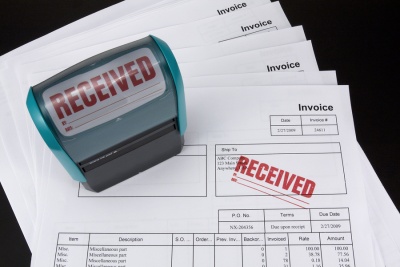Stay in the know!
Join our newsletter for special offers.
Imagine this: You've just completed a big order. You spent countless hours and many sleepless nights working on completing this project in anticipation of receiving a significant return. You submitted the project well before the deadline in hopes of impressing your client; however, it's been three weeks and the money still hasn't come in yet.
Other than sending reminders, past-due invoices, and unreturned emails, how do you get customers to pay up on time? It's actually quite simple. Before even taking on a job, you can set up a system that increases your chance of not only getting paid, but getting paid on time.
Before you begin any work, make your payment expectations clear. Some questions to run through with your customer are:
A contract can cover all your payment terms, but make sure nothing is hidden in obscure paragraphs or jargon. You'll need to be clear about what and how you charge. Charging a flat rate is easiest, but not every business/project is the same. If you must bill by the hour, you might only be able to give your client a quote.
If this is the case, ensure that you and your customer are on the same page with the project scope. If there are any additional services that you know will require an extra fee, let them know beforehand too.
Finally, you should decide if you'll charge anything upfront. (Hint: you should, and that's our next point.)
Many companies and freelancers require a percentage of the project pay before any work begins. Upfront payment acts as a security measure for you and helps weed out suspicious clients.
Note: It's common practice to ask for 30 to 50 percent of the total cost before you begin work.
It can be tempting to take your time on an invoice. The hard work's already done and you have other business to get to. But you don't get paid without an invoice.
Sending your invoice promptly is a good habit. The quality and effect of your work will still be fresh in your client's mind, making them more inclined to pay up sooner.
While we're on the subject of invoices, you should also take care in how you construct your invoices. According to a Freshbooks study, using polite, friendly language on invoices can increase chances of getting paid by 5 percent. So, send out the friendly verbiage and thank clients for their business, but don't be afraid to try this next tip.
If you still struggle with getting paid, a penalty might be in order. Being polite works, but so does the threat of interest. Implement a late policy and make customers aware of it before work begins and again when you send an invoice.
Choose a standard rate to charge if you're not paid within 15 or 30 days of the project's completion. For example, you might charge 2 percent for every month past the deadline.
Tracking down your payments can get awkward, but it's a necessary discomfort. Try putting these measures into place so your accounts receivable don't suffer.
Join our newsletter for special offers.
